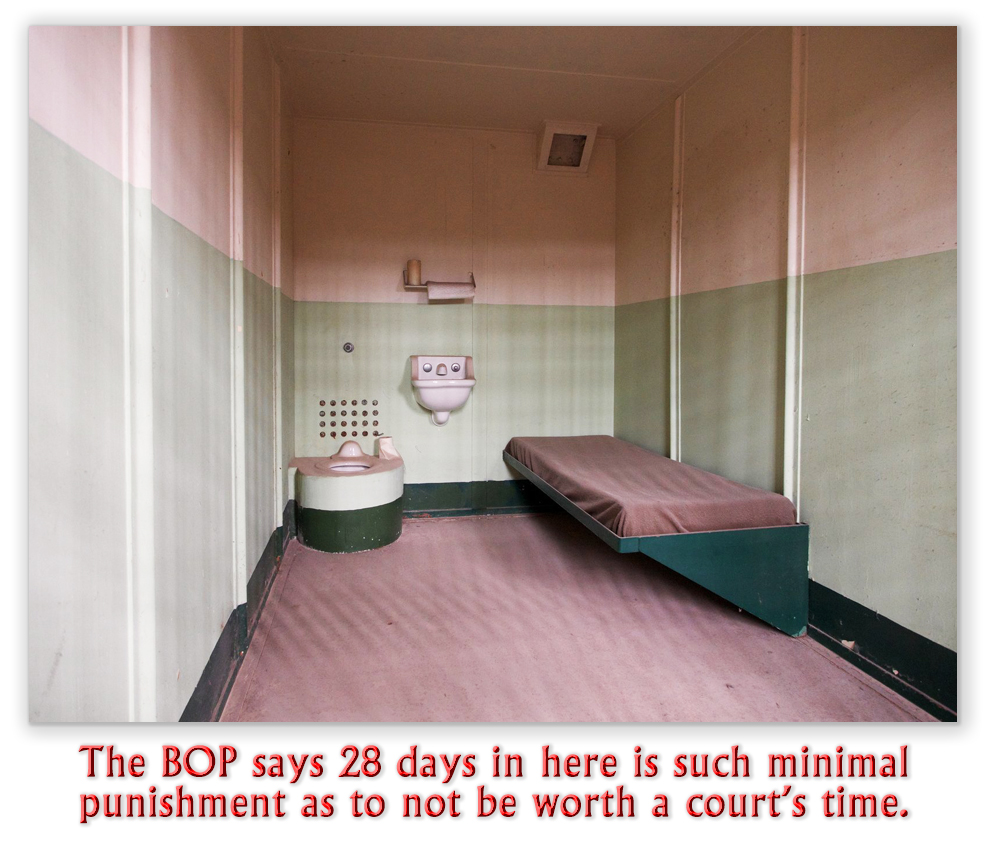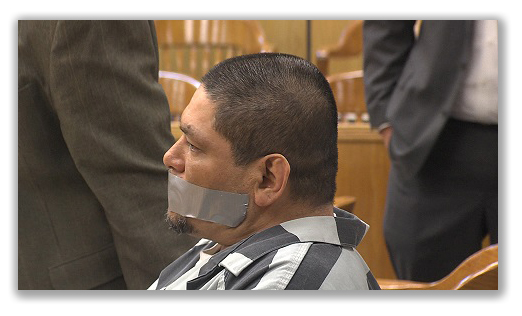We post news and comment on federal criminal justice issues, focused primarily on trial and post-conviction matters, legislative initiatives, and sentencing issues.
THE NIGHT THE LIGHTS WENT OUT IN TEXAS
A federal prison in Texas, like a lot of joints around the country, suffers from frequent power outages. Derrick Brunson (who has since been released) filed an administrative remedy request with prison administrators, expressing his concern over security due to the lights going out all the time and asking that something be done about.
 Derrick’s counselor quickly responded to his filing. She complained that he was “just putting more work on her desk.” In response to Derrick’s filing, she wrote him up for threatening her, filing a disciplinary report known in federal prison parlance as a “shot.” Derrick was promptly thrown into the SHU – the “Special Housing Unit” – for three weeks while awaiting a hearing in front of a Disciplinary Hearing Officer.
Derrick’s counselor quickly responded to his filing. She complained that he was “just putting more work on her desk.” In response to Derrick’s filing, she wrote him up for threatening her, filing a disciplinary report known in federal prison parlance as a “shot.” Derrick was promptly thrown into the SHU – the “Special Housing Unit” – for three weeks while awaiting a hearing in front of a Disciplinary Hearing Officer.
In due course, he was found guilty of the “shot” and was given 7 days in disciplinary segregation and a loss of some good time credits he had previously earned.
 After his 28 days in the SHU, Derrick appealed the finding of guilt, and his appeal fell on the desk of cooler heads. The DHO’s finding was reversed, and the “shot” was expunged. After that, Derrick – who justifiably felt that he had been punished for exercising his 1st Amendment rights in a completely reasonable way – brought a Bivens action against prison staff for a retaliation conspiracy against him for speaking out.
After his 28 days in the SHU, Derrick appealed the finding of guilt, and his appeal fell on the desk of cooler heads. The DHO’s finding was reversed, and the “shot” was expunged. After that, Derrick – who justifiably felt that he had been punished for exercising his 1st Amendment rights in a completely reasonable way – brought a Bivens action against prison staff for a retaliation conspiracy against him for speaking out.
The district court dismissed Derrick’s complaint, holding that his conspiracy claim was “conclusory” and his seven days in seg was too insignificant an injury, “de minimis” as the courts like to say.
 Last week, the 5th Circuit reversed. The appellate court held the district judge should not have ignored the 21 days Derrick spent in the hole waiting for a hearing. “Taking the 21 days in the SHU and the seven days of disciplinary segregation together,” the Court said, “the alleged retaliatory act lasted at least 28 days, which is certainly… not de minimis.”
Last week, the 5th Circuit reversed. The appellate court held the district judge should not have ignored the 21 days Derrick spent in the hole waiting for a hearing. “Taking the 21 days in the SHU and the seven days of disciplinary segregation together,” the Court said, “the alleged retaliatory act lasted at least 28 days, which is certainly… not de minimis.”
The 5th found it significant that the shot was later expunged, because that suggested the counselor “lacked any basis for initiating the charge.” And Derrick’s conspiracy claim was not “conclusory,” the Court said. He alleged that while he was in the SHU, the Captain told him, “You didn’t think I know the lights are an issue? You are not going to make threats.” A lieutenant then said, “Thanks for telling us how to do our jobs, you want to tell us how to do our jobs things go downhill for you.”
 When Derrick pointed out that the incident report did not state a violation, the Captain responded, “Well, when I talk to the DHO we’ll see if he can articulate” one. The DHO subsequently changed the charged offense from “threatening” to “refusal to obey an order.”
When Derrick pointed out that the incident report did not state a violation, the Captain responded, “Well, when I talk to the DHO we’ll see if he can articulate” one. The DHO subsequently changed the charged offense from “threatening” to “refusal to obey an order.”
The Circuit held that “these facts suffice to state “an agreement to commit an illegal act which resulted in the plaintiff’s injury.”
Brunson v. Nichols, Case No. 14-31350 (5th Cir. Nov. 15, 2017)
– Thomas L. Root

